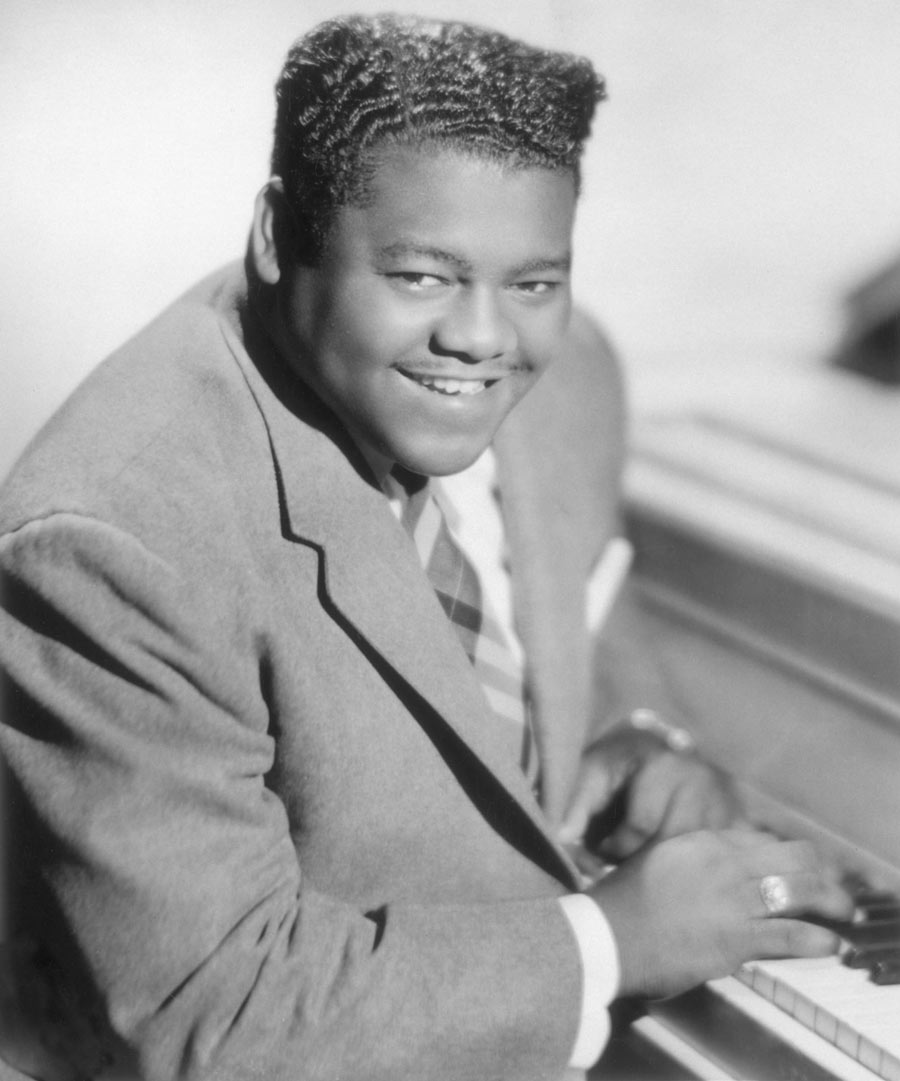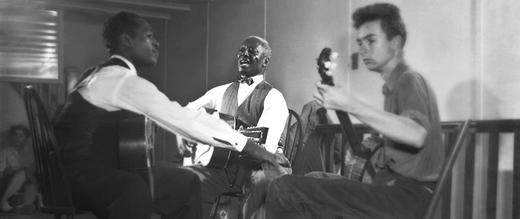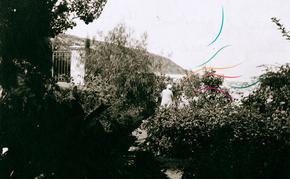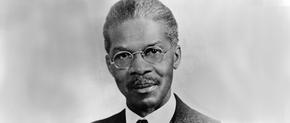The views expressed in our content reflect individual perspectives and do not represent the authoritative views of the Baha'i Faith.
We got to realize we are one people, or there will never be no love at all. – Bob Marley
Well, I wouldn’t want to say that I started it (rock ’n’ roll), but I don’t remember anyone else before me playing that kind of stuff. – Fats Domino
Can a mere song change people’s minds? I doubt that it is so. But a song can infiltrate your heart and the heart may change your mind. – Elvis Costello
When I was a kid, the most excitement I can ever remember was when Fats Domino came to town.

Fats Domino
Fats still sings and plays occasionally in New Orleans, his hometown, but at the time he was a relatively unknown touring musician singing Louisiana rhythm and blues and early rock n’ roll. I knew about him because I listened, constantly, to a “race music” radio station, which played only music by African-American artists. Even as a young white boy, that was the music I loved. The “popular” versions of Fats Domino’s songs—covered by Pat Boone and groups like the Four Seasons—I had absolutely no use for. They sounded like thin, ersatz copies, and I wanted the real, gritty, down-home originals that Fats sang. When his best-known song, Ain’t That a Shame, came on the radio, it always deeply thrilled and embarrassed me. It thrilled me because it seemed so real, and it embarrassed me because it made me want to get up and dance—and I couldn’t dance a lick.
I probably didn’t know it or couldn’t articulate it at the time, but I also yearned to make a connection to black people and their lives through Fats Domino’s music, a connection that my culture definitely did not want me to make. Obviously, lots of kids felt the same way I did—I later found out, for example, that the first song John Lennon learned when he picked up a guitar was Ain’t That a Shame. Because so many kids loved the music, the popularity of rhythm and blues, soul and rock n’ roll broke down racial barriers faster and more completely than anyone could have imagined possible.
Here’s what Fats Domino’s biographer Rick Coleman says about his music, the era itself and its impact on racial segregation:
In 1957 alone, the Domino band traveled 13,000 miles across the country, playing 355 sold-out shows, often for unprecedentedly integrated audiences. He [Domino] had four major riots at his shows partly because of integration… So they were mixing… dancing, plus the races together for the first time in a lot of these places. There was this historic moment in American history. People don’t really credit rock ‘n’ roll for integrating America, but it really did. – Blue Monday: Fats Domino and the Lost Dawn of Rock n Roll.
During that time of great racial separation, the music brought us together. When I first heard rhythm and blues, it went right to my heart and soul. It created and strengthened a sense of collective identity between blacks and whites as people, and helped us see beyond race, which our leaders had used for a very long time to divide us. “We are in this together,” the music affirmed, and an entire generation of young people responded.
I just saw a wonderful documentary on that important theme, called Mavis!, about the great soul and gospel singer Mavis Staples and the music group The Staples Singers. Here’s what Mavis said about that era and its music:
The songwriters knew we were doing protest songs. We had made a transition back there in the ’60s with Dr. King. We visited Dr. King’s church in Montgomery before the movement actually got started. When we heard Dr. King preach, we went back to the motel and had a meeting. Pops [Mavis’s father, who played guitar and shared lead vocal duties with his youngest daughter] said, ’Now if he can preach it, we can sing it. That could be our way of helping towards this movement.’ We put a beat behind the song. We were mainly focusing on the young adults to hear what we were doing. You know if they hear a beat, that would make them listen to the words. So we started singing protest songs. All those guys were writing what we actually wanted them to write. Pops would tell them to just read the headlines and whatever they saw in the morning paper that needed to be heard or known about, [they would] write us a song from that.
That combination—the beat of rhythm and blues and rock n’ roll with the spiritual message of social change—has helped bring about enormous progress in our racial struggles. Combining traditional spirituals and church hymns with secular freedom songs and popular music, as the Baha’i teachings suggest, can create an enormously influential force:
Try, if thou canst, to use spiritual melodies, songs and tunes, and to bring the earthly music into harmony with the celestial melody. Then thou wilt notice what a great influence music hath and what heavenly joy and life it conferreth. Strike up such a melody and tune as to cause the nightingales of divine mysteries to be filled with joy and ecstasy. – Abdu’l-Baha, from a tablet to an individual Baha’i.
That marvelous merger of the spiritual and the earthly, weaving the soulful influences of the age into the music of the moment, gave the world a way for us all to start dancing together.
Next: Protest and Freedom Songs—All Over the World
You May Also Like
Comments

















jazz and for the disadvantaged. Therefore, when I found doo wop and Motown at boarding school in Michigan, my infatuation for it was probably pre-ordained. At home in the summers, I could only depend on getting WLS and usually WABC, ...but I was willing to endure an hour of water and fluff for each 2-3/4 minutes of the Marvelettes, Mary Wells, or Drifters. How ironic that even then a certain record producer we all know was trying to remove the grit I thrived on in order to satisfy the perceived taste of whites! Luckily, Phil Spector kept things really exciting until the British Invasion reminded us of our roots and commonality. In Viet Nam I was happy to sense that those earlier cultural crossings had built a very strong, but still narrow, bridge. It's not that the black/white divide wasn't
troubling at times, but something seemed different. I do think that lots of time with little but music for fun cultivated appreciation and respect among the diverse listeners. Since then, the Internet has exposed people to new music they could hardly have found earlier even if they had been enlightened enough to want to, so this has to be a unifying development.